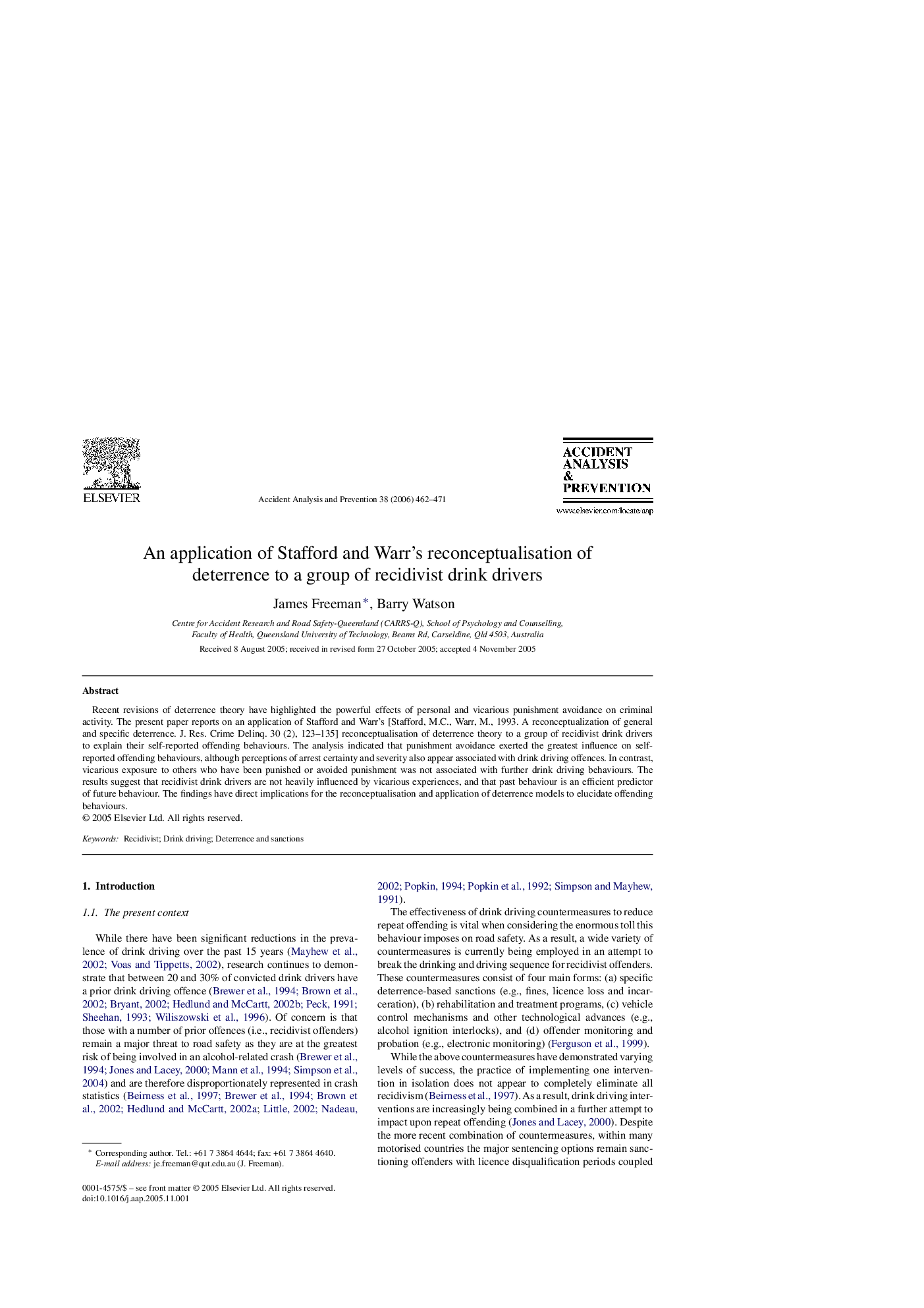| Article ID | Journal | Published Year | Pages | File Type |
|---|---|---|---|---|
| 573954 | Accident Analysis & Prevention | 2006 | 10 Pages |
Recent revisions of deterrence theory have highlighted the powerful effects of personal and vicarious punishment avoidance on criminal activity. The present paper reports on an application of Stafford and Warr's [Stafford, M.C., Warr, M., 1993. A reconceptualization of general and specific deterrence. J. Res. Crime Delinq. 30 (2), 123–135] reconceptualisation of deterrence theory to a group of recidivist drink drivers to explain their self-reported offending behaviours. The analysis indicated that punishment avoidance exerted the greatest influence on self-reported offending behaviours, although perceptions of arrest certainty and severity also appear associated with drink driving offences. In contrast, vicarious exposure to others who have been punished or avoided punishment was not associated with further drink driving behaviours. The results suggest that recidivist drink drivers are not heavily influenced by vicarious experiences, and that past behaviour is an efficient predictor of future behaviour. The findings have direct implications for the reconceptualisation and application of deterrence models to elucidate offending behaviours.
